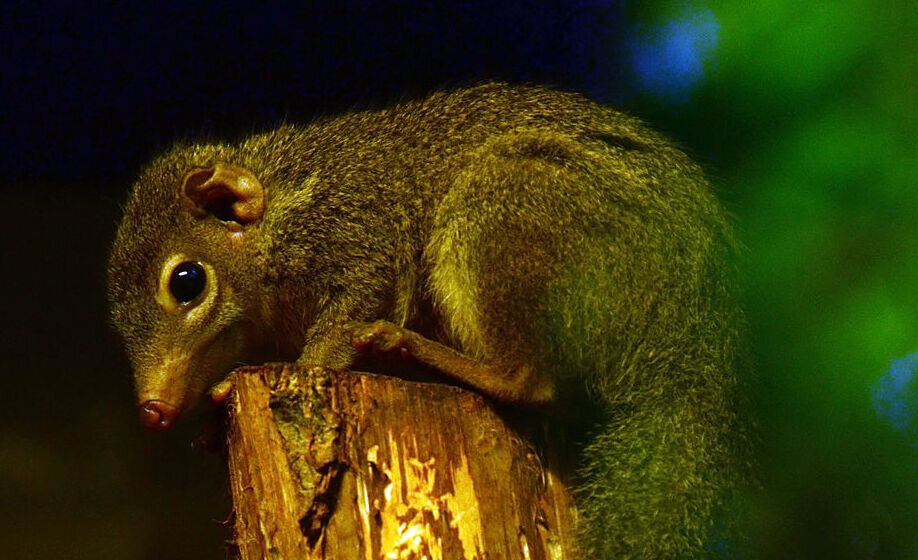
Maya Juman is lead author on a paper which finds treeshrews increase in size in warmer settings, contrary to established norms.
Our study is the first to demonstrate a rule reversal over time in any species. We need to revisit some of our assumptions about size variation as our climate continues to rapidly change.
Maya Juman
New evidence shows that some mammals increase in size in warmer settings, upsetting established norms and suggesting that climate change may be having an unexpected impact on animal body size.
The study*, published in Scientific Reports, finds that recent changes in treeshrew body size subvert two of the most studied ecogeographical rules about body size variation within species.
According to Bergmann’s rule, named after nineteenth century German biologist Carl Bergmann who described the pattern in 1847, individuals have larger body sizes in colder climates (typically at higher latitudes).
The second rule, named Foster’s rule after a 1964 study by mammalogist J. Bristol Foster, predicts that island populations of small-bodied species are on average larger in size than their mainland counterparts.
The researchers, led by Maya Juman [2022], a Gates Cambridge scholar and PhD student at the University of Cambridge, tested the rules across space and time simultaneously in the Northern Treeshrew, a small mammal native to South and Southeast Asia. They used a dataset of museum specimens collected across a wide spatial and temporal range, along with associated historical climate data. They found that both rules have inverted rapidly over time: body size variation in specimens collected in the late 19th century followed the patterns predicted by Bergmann’s and Foster’s rules, but the pattern reversed in the 20th century.
According to the study, the size of Northern Treeshrews on the mainland has consistently increased over time in warmer settings, with temperature being the most important predictor of body size, although not the only one. Rainfall, for example, also plays a role, with areas of higher precipitation seeing a more pronounced relationship between temperature and body size.
The researchers also discovered an interaction between the two rules: Bergmann’s rule is upheld in island populations but not mainland ones, so the island rule is upheld at higher latitudes but not closer to the equator. The study demonstrates the complex array of dynamic and potentially interdependent factors that affect body size, which is linked to critical physiological, ecological and behavioural traits.
The researchers, from the University of Cambridge, Yale University, the University of Alaska Fairbanks, and McGill University, call for experts to re-examine ecogeographical rules in light of global warming to see whether climate change may be rewriting the rules themselves. “Our study is the first to demonstrate a rule reversal over time in any species,” said Juman. “We need to revisit some of our assumptions about size variation as our climate continues to rapidly change.”
*Recent and rapid ecogeographical rule reversals in Northern Treeshrews by Maya M. Juman (Cambridge; Yale), Virginie Millien (McGill), Link E. Olson (University of Alaska) and Eric J. Sargis (Yale)
**Picture credit: Burmese tree shrew ( Tupaia belangeri ) in Planckendael by Vassil. Courtesy of Wikimedia commons.












